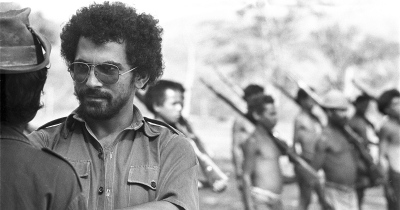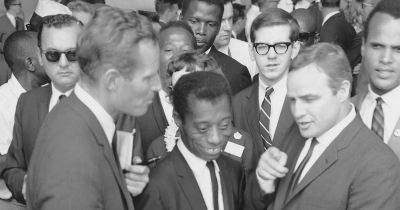Commentary
Would it all have turned out differently had InterActiveCorp stared down the online mob? In December 2013, a public relations executive with the company, Justine Sacco, posted a joke on social media, satirising American insularity and racism. Sacco was about to board a flight to South Africa, from where her anti-apartheid family had emigrated, when she tweeted: ‘Going to Africa. Hope I don’t get Aids. Just kidding, I’m white.’ While Sacco was in the air and offline, her tweet went viral. A social media mob condemned her as a racist, established that she worked at InterActiveCorp, and pressured the company to sack her. ‘We are about to watch this @JustineSacco bitch get fired. In REAL time,’ posted one of her critics. The company duly sacked her.
... (read more)A recent advertisement in The Guardian headed ‘Can’t get enough of the US election?’ prompted reflections on our seeming obsession with the current presidential campaign. Myriad readers follow the contest closely, almost compulsively. On the hour, we check the major websites for the latest polls or Trumpian excesses. In a way, the election feels more urgent, galvanising, consequential, and downright entertaining then next year’s federal election.
... (read more)Everyone gets at least one lucky break in life, or so the saying goes. For me, one of the luckiest was a childhood spent in Papua New Guinea (PNG). In 1966, my father left Melbourne for what was then the Territory of Papua and New Guinea, prompted by curiosity and the opportunity to work on kuru, a fatal neurogenerative disease affecting the Fore people of the Eastern Highlands. My mother joined him two years later, in 1968, and in PNG they remained until 1990.
... (read more)Twenty-five years ago, an international peacekeeping force entered East Timor, delivered it from Indonesian occupation, and placed it under United Nations administration. Known as the International Force East Timor (InterFET), it had 11,000 troops from twenty-three countries and was commanded by an Australian major general. Everything about these events seemed miraculous. East Timor’s independence had long been regarded as impossible; a top adviser to President Franklin D. Roosevelt observed during World War II that it might eventually achieve self-government, but ‘it would certainly take a thousand years’. Indonesia invaded East Timor in 1975 while the latter was in the process of decolonising from Portugal, annexed it the following year, and declared its rule ‘irreversible’.
... (read more)In The Australian’s Higher Education Supplement of 3 November 2004, Louise Adler of Melbourne University Publishing argued that young scholarly writers have been ‘abandoned by the academy’. Tom Griffiths replies to her article, which was titled ‘Let’s End This Dissertation Dissipation’:
... (read more)The monsoon has now settled the dust stirred up during an eventful and blisteringly hot early summer in India. From April to June, in seven stages of voting and in temperatures that in some parts reached the high forties Celsius, almost 650 million people cast their votes in the largest election ever organised. The polls and the pundits predicted another big victory for Narendra Modi and the Bharatiya Janata Party (BJP). Yet when the verdict came, it surprised most observers. The BJP, supported by its coalition partners, was returned to office with far fewer seats than expected, and with Modi’s political authority much diminished.
... (read more)Australia is experiencing a housing disaster that risks turning into a social and economic catastrophe. It is a disaster because all four aspects of the system are extremely stressed and play havoc with the lives and aspirations of millions of people. Home ownership is beyond the reach of many households, even those with two good wages coming in, let alone those with one. Rents have skyrocketed and few affordable rentals are available for ordinary working families. Housing costs are so high as to lower living standards generally. The modern history of social housing is one of deliberate government under-investment, to the point where it is available only to those on income support and with desperate needs. In our land of plenty, homelessness is among the highest in the world and visible to all – a fact reported to our national shame in the international media.
... (read more)Bill Hayden, the first Queensland policeman to lead a federal political party, wrote of his experiences as a constable – the violence, the squalor, the tragedy – in his autobiography, Hayden (Angus & Robertson, 1996), and concluded: ‘All of these led me to feel a great anger at the injustices some people had to bear.’ At one point, the former governor-general noted that his ‘humanist’ reaction to injustice reflected his background as the son of a father who was an illegal immigrant and a mother who suffered domestic abuse.
... (read more)After Netflix’s intriguing sci-fi thriller 3 Body Problem streamed into Australia earlier this year, readers rushed out in droves to buy the book on which the series is based: Liu Cixin’s The Three-Body Problem (2008), which was first translated into English in 2014. Most reviews have focused on the philosophical, literary, and cultural aspects of the book – and they are, indeed, fascinating. But the thing that interests me here is the accurate scientific detail that Liu uses to drive the story. Of course, this is sci-fi, so ultimately he presses real concepts into unreal (but imaginative) service. Still, much more physics and maths appear in his book than in the Netflix series, which, according to Tara Kenny’s review in The Monthly (April 2024), ‘offers a welcome workaround’ the science through visual effects. In the book, by contrast, ‘Lengthy passages are spent dutifully explaining physics theories and technological functionality, which is likely to deter readers who haven’t thought about science since they dissected a rat in high-school biology.’
... (read more)In 1903 W.E.B. Du Bois famously declared: ‘The problem of the twentieth century is the problem of the color-line.’ He meant not only in the United States but also elsewhere in the world. As for this century, in America, at least, we can now say it remains the dominant problem. The very fact, for instance, of a movement named ‘Black Lives Matter’ – now a decade old – speaks to something unspeakable: an obvious and overt racism that is driving America to a reckoning.
... (read more)







